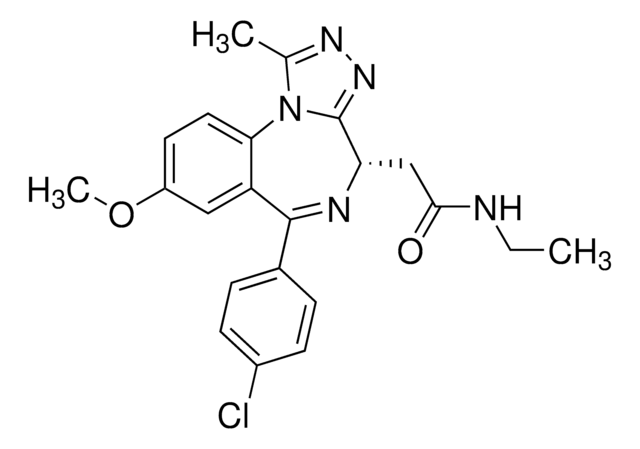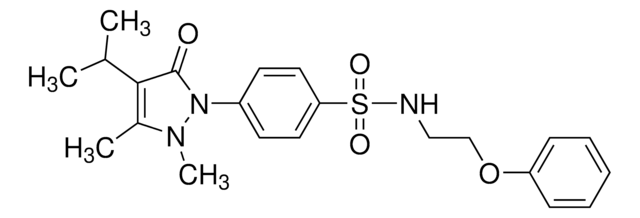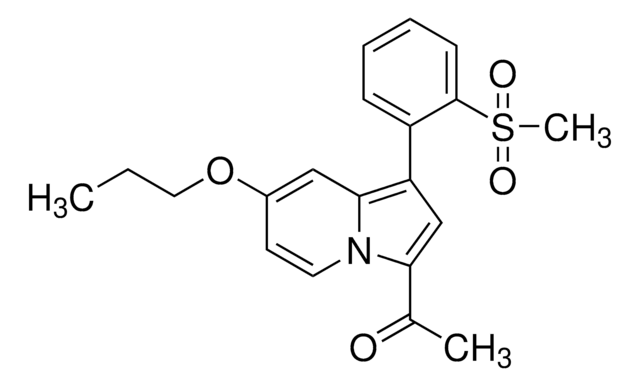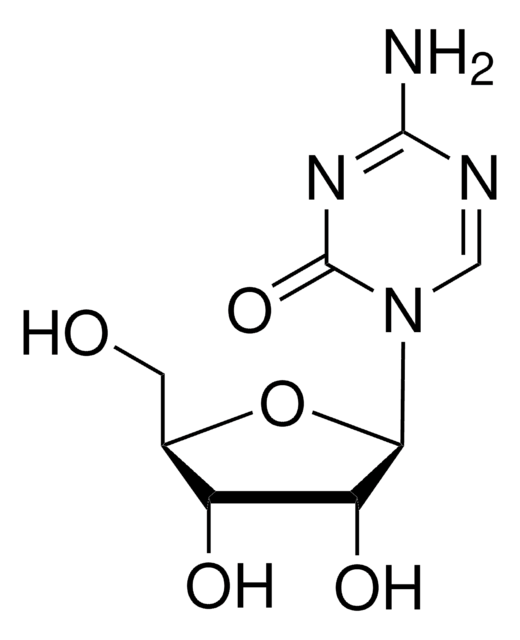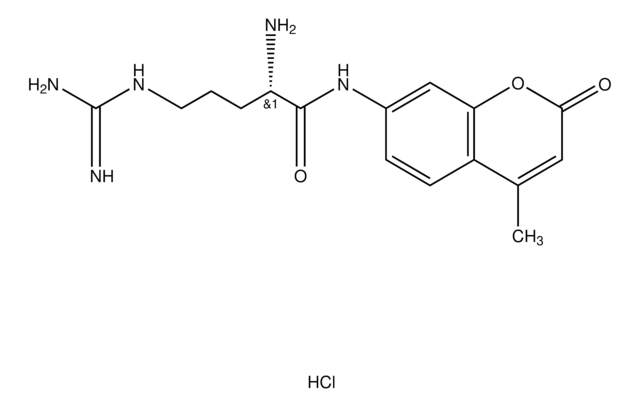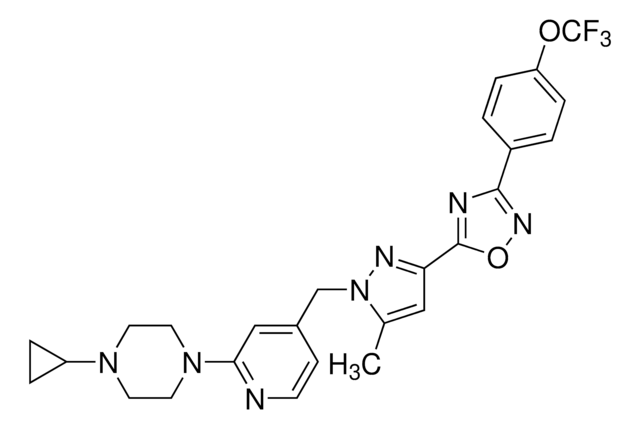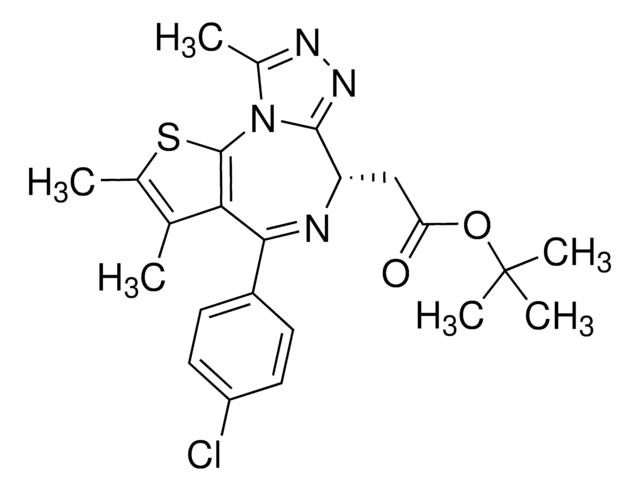SML1276
BAZ2-ICR
≥98% (HPLC)
Synonyme(s) :
4-{4-(1-Methyl-1H-pyrazol-4-yl)-1-[2-(1-methyl-1H-pyrazol-4-yl)-ethyl]-1H-imidazol-5-yl}-benzonitrile
About This Item
Produits recommandés
Essai
≥98% (HPLC)
Forme
powder
Couleur
white to beige
Solubilité
DMSO: 10 mg/mL, clear
Température de stockage
2-8°C
Chaîne SMILES
CN(N=C1)C=C1CCN2C=NC(C3=CN(C)N=C3)=C2C4=CC=C(C#N)C=C4
InChI
1S/C20H19N7/c1-25-12-16(10-23-25)7-8-27-14-22-19(18-11-24-26(2)13-18)20(27)17-5-3-15(9-21)4-6-17/h3-6,10-14H,7-8H2,1-2H3
Clé InChI
RRZVGDGTWNQAPW-UHFFFAOYSA-N
Catégories apparentées
Actions biochimiques/physiologiques
To learn about other SGC chemical probes for epigenetic targets, visit sigma.com/sgc
Caractéristiques et avantages
Autres remarques
Produit(s) apparenté(s)
Mention d'avertissement
Danger
Mentions de danger
Conseils de prudence
Classification des risques
Acute Tox. 3 Oral
Code de la classe de stockage
6.1C - Combustible acute toxic Cat.3 / toxic compounds or compounds which causing chronic effects
Classe de danger pour l'eau (WGK)
WGK 3
Point d'éclair (°F)
Not applicable
Point d'éclair (°C)
Not applicable
Faites votre choix parmi les versions les plus récentes :
Certificats d'analyse (COA)
Vous ne trouvez pas la bonne version ?
Si vous avez besoin d'une version particulière, vous pouvez rechercher un certificat spécifique par le numéro de lot.
Déjà en possession de ce produit ?
Retrouvez la documentation relative aux produits que vous avez récemment achetés dans la Bibliothèque de documents.
Notre équipe de scientifiques dispose d'une expérience dans tous les secteurs de la recherche, notamment en sciences de la vie, science des matériaux, synthèse chimique, chromatographie, analyse et dans de nombreux autres domaines..
Contacter notre Service technique